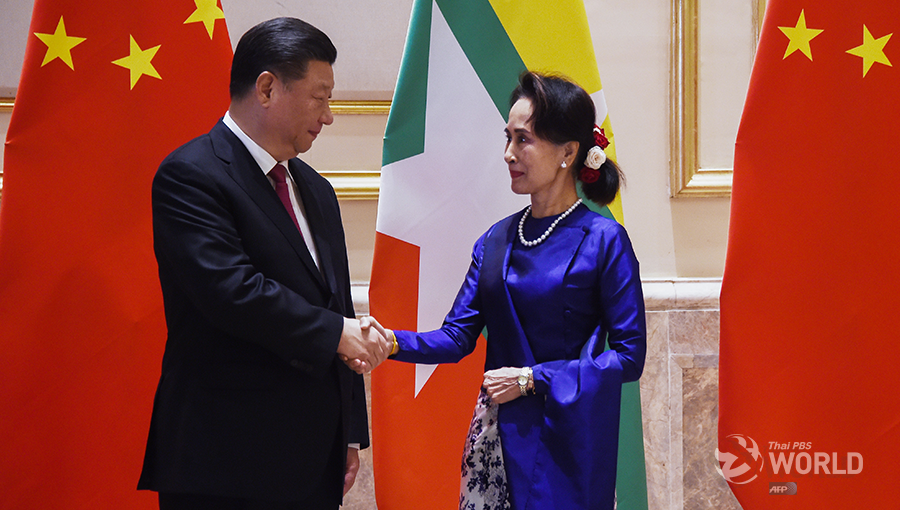Chinese president visits Myanmar to expand Belt and Road Initiative

A few minutes every morning is all you need.
Stay up to date on the world's Headlines and Human Stories. It's fun, it's factual, it's fluff-free.
Chinese President Xi Jinping arrived in Myanmar on Friday, January 17 for diplomatic meetings looking to expand Beijing’s signature international economic development program, called the Belt and Road Initiative (BRI).
The BRI was created in 2013. Its main purpose is to create economic partnerships with countries around the world in order to increase China’s connectivity on the global stage. As of October 2019, BRI programs have reached 138 countries.
$1 trillion USD has been pledged toward the program thus far, largely involving infrastructure projects, such as dams, ports, highways and pipelines.
Jinping met with Myanmar’s leader, State Counsellor Aung San Suu Kyi, marking the first time a Chinese leader has visited the country in nearly 20 years.
Jinping is expected to sign a deal worth $1.3 billion for a seaport in Rakhine State, located in the far west of Myanmar. Once completed, the port – named the Kyaukphyu Port due to its location in the Kyaukphyu special economic zone (SEZ) – will give the Chinese direct access to the Indian Ocean for trade.
Human rights groups cry foul
However, Rakhine State is the home of the Rohingya people, a minority group in Myanmar that has been systematically uprooted from their homes over the past several years in what the United Nations (UN) has characterized as “a textbook case of ethnic cleansing.” According to China’s foreign ministry, though, the issue is a domestic one that shouldn’t be “internationalized.”
According to Nicholas Bequelin, the regional director for Amnesty International: “This has only emboldened the military’s relentless campaign of human rights violations and war crimes against ethnic minorities across the country.”
More concerns raised
Over $6.5 billion of Chinese imports flowed into the country in 2018, making China Myanmar’s largest trading partner. China advertises the BRI program as a chance to increase global development and give developing countries access to world-class infrastructure that helped build China, but some are concerned over the conditions surrounding the Chinese loans.
Many of these projects are funded, at least in part, by loans from Chinese banks. If Chinese companies end up monopolizing most of the profit from these initiatives – as some analysts have warned – it could place a huge burden on developing economies’ ability to pay off the debt.
In addition to the loans, the projects are often built using Chinese workers and run by Chinese companies. For these reasons, some are concerned that the projects will harm local livelihoods.
After construction started on the Chinese-funded Myitsone Dam in northern Myanmar, many villagers were unsettled. Some were displaced and compelled to work across the border in China and stay in substandard housing.
“The major losses were the farmlands,” said Reverend Tu Hkawng, a member of the mostly Christian Kachin ethnic minority in the area. “I would say our social structure was destroyed. We used to help and care for each other. Such things are gone” he added.
[article_ad]




Comments ()